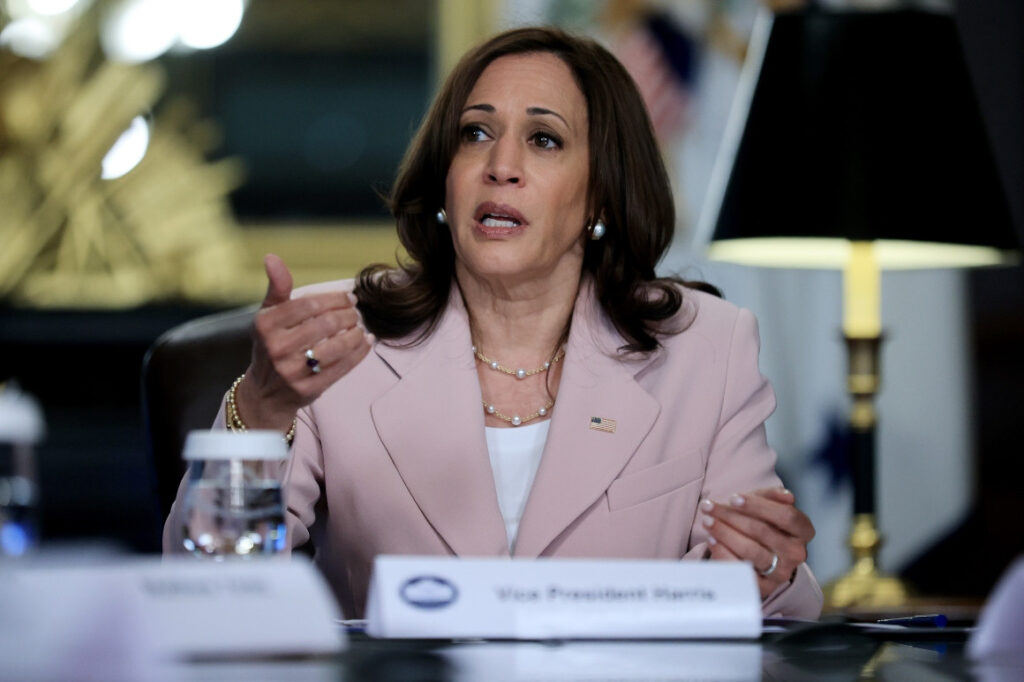Jennifer Garner made plans to visit Nevada and was in Pennsylvania stumping for Vice President Harris a week after her Arizona appearance.

Jennifer Garner :
For a group of “Moms for Harris” gathered at a tearoom in Tucson, Arizona, actress Jennifer Garner issued a warning: Get ready for more Hollywood celebrities to come to your state to discuss the race on November 5.
“My friends and coworkers Kerry Washington and Jessica Alba will be here tomorrow. Garner grinned and continued, “We’re all just going to drive you crazy and barnstorm you.”
“Everything must be a nightmare. To laughing, Garner remarked, “You don’t even want to turn on the TV.” “That being said, it really is that important.”
In one of the seven battleground states that will determine whether Democrat Kamala Harris or Republican Donald Trump wins the presidency, the “Alias” actor acknowledged the text messages, canvassing, and other efforts.
Garner and other celebrity endorsers are a part of the last-minute rush to get people to vote before Election Day on November 5. Garner had plans to visit Nevada and was in Pennsylvania stumping for Vice President Harris a week after her Arizona stop.
Political strategists advise celebrities who wish to run for office to speak about topics they have worked on and to visit locations with which they have a personal connection. They are also matching them with powerful political figures.
In Garner’s instance, the actress revealed how her parents met in Arizona when she joined Ambassador and former policy adviser Susan Rice. Garner, a Save the Children board member, praised Harris’ advocacy for child tax credits and increased wages for childcare providers.
Quaid exclaimed, “I’m here to tell you that it’s time to pick a side,” amid cheers.
Other entertainment industry backers of Trump include wrestler Hulk Hogan, who addressed at the Republican National Convention this summer, and rockers Ted Nugent and Kid Rock.
AIDING OR INJURING :
Will Quaid, Garner, or any other celebrity change anything?
Christian Grose, a professor of political science and academic director at the University of Southern California’s Schwarzenegger Institute, said that celebrity appearances do magnify messages about voting.
Only that voter is impacted when a stranger knocks on their door. According to Grose, when a celebrity does this, it results in social media posts and media coverage that extends beyond that residence.
The fame and the situation will determine whether or not that results in a larger turnout.
Oprah Winfrey and other megastars can have a significant influence. During the Democratic primaries in 2007, Winfrey’s support of Barack Obama was said to have generated one million votes.
Additionally, the nonprofit organization Vote.org reports that pop sensation Taylor Swift encouraged thousands of new voter registrations in 2023 with a nonpartisan push to register.
Swift took things a step further this September by endorsing Harris in an Instagram post that has already accumulated over 11 million likes.
“Celebrity Influence: Politics, Persuasion, and Issue-Based Advocacy,” written by Mark Harvey in 2018, suggests that although the Harris campaign welcomed Swift’s assistance, it might not be a boon.
Before Swift’s support, Harvey and other researchers polled 1,000 people in August. Swift’s picture with a generic statement asking people to vote was displayed to half of the participants, while the other half saw the same image advocating votes for Democrats.
Swift followers who were still on the fence were the study’s most receptive audience. Swifties who saw the overall message said they were very likely to vote. However, when Swift’s admirers saw her urging them to vote for Democrats, many decided not to do so.
Harvey, an associate professor at Kansas’ University of Saint Mary, stated, “I think there are a lot of people who don’t want to mix their entertainment with their politics.”
Furthermore, research indicate that celebrity endorsements have “no effect to marginal effect” on turnout outside of the privileged circle of the largest celebrities, according to Grose.
However, the presidential election and numerous congressional elections could still be decided by hundreds or thousands of votes.